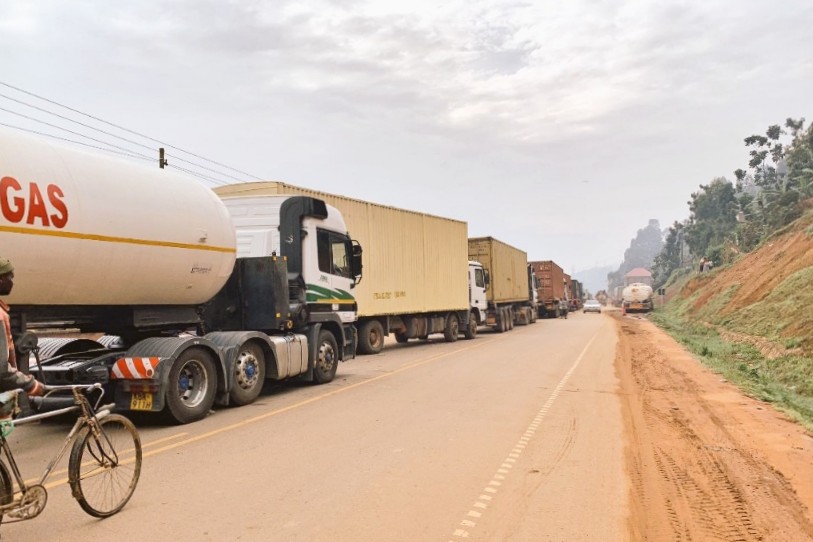Free movement of goods and services will continue in the East African Community (EAC) bloc despite the Covid-19 outbreak.
However, in order to ensure thorough screening, trucks will be disinfected before they are allowed to continue to their final destinations. Crew members will be quarantined for 14 days in countries of destination, according to new national guidelines.
These are among decisions made by the Health ministers and ministers responsible for EAC Affairs from the six partner states on Wednesday during their video conference.
“The partner states should implement 100 per cent exit and entry screenings,” the ministers said, adding that movement of trucks carrying goods would continue.
They resolved that the EAC organs and institutions would utilise video conferences, Webinars and Skype in crucial meetings instead of face-to-face encounters.
Besides strict screening, the truck drivers would be required to stop only at designated points along the transport corridors “so as to limit chances of spread of Covid-19 during transit”.
The crew for cargo planes and vessels will be determined by the specifications of the aircraft or ship and set international guidelines. The crew will be quarantined at a government designated hotel for the period of their stay.
The ministers directed the partner states to establish a surveillance system to monitor crew health and enable contact tracing.
The East African Health Research Commission (EAHRC), an institution of the EAC, was requested to conduct research on Covid-19 which to date has affected four of the six partner states.
Research on the deadly virus, it was stressed, would enable the EAC countries to be informed on new technologies, advances in care and treatment, vaccines, behaviour of the virus and diagnostics among others.
Until Wednesday, there were 91 confirmed cases of Covid-19 in four EAC states – Tanzania (12), Kenya (28), Uganda (14) and Rwanda (41).
No cases had been reported in Burundi and South Sudan although the two countries have like the rest of the world applied mandatory measures against Covid-19.
Already, a number of countries in the region have taken various steps in a deliberate move to contain further spread of the coronavirus.
As part of the additional measures to curb the spread of the virus, President John Magufuli said earlier this week that Tanzania would put all visitors and Tanzanians arriving from the high risk countries under quarantine at their own expenses for 14 days. President Magufuli also called upon Tanzanians, especially public servants to avoid travel to countries which have recorded high infection rates.
The country was already in partial lockdown as the government closed schools, colleges and universities as soon as the first coronavirus cases were confirmed.
Rwanda became the first nation in Africa to be placed on lockdown for at least 14 days in an effort to fight the coronavirus outbreak.
The country banned unnecessary movement and visits outside the home by the country’s 12 million citizens, except for essential services such as health care, food shopping or banking, and for the personnel performing such services. All employees, public and private, would be working from home, except for those providing essential services. Rwanda has also closed its borders, except for shipments of goods and cargo and returning Rwandan citizens and legal residents, who will be subject to mandatory 14-day quarantining at designated locations.
Kenya is in a partial lockdown after President Uhuru Kenyatta announced the closure of schools, and imposed sweeping travel restrictions.
Travellers from any country with a single case of the virus have been barred from entering Kenya for the next 30 days.
Only Kenyans and foreigners with residence permits will be allowed in, so long as they agree to be quarantined.
Uganda, which has so far confirmed a total of 14 Covid-19 cases, announced that no person will be allowed to enter the country starting from Monday this week in a bid to stem the coronavirus outbreak in the landlocked East African nation.


